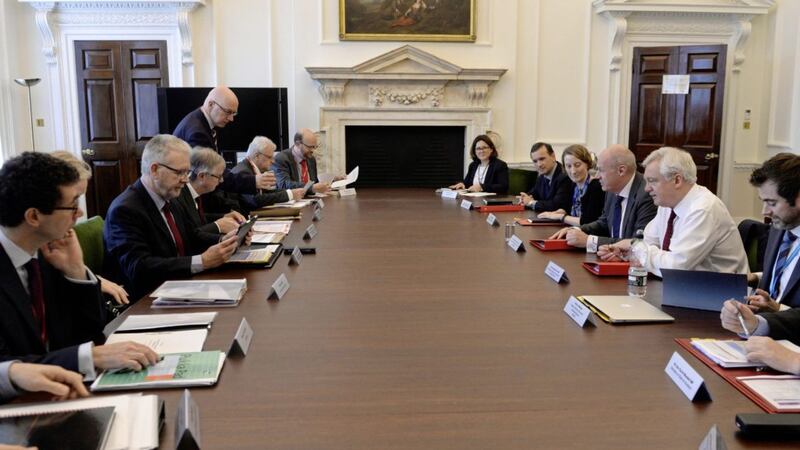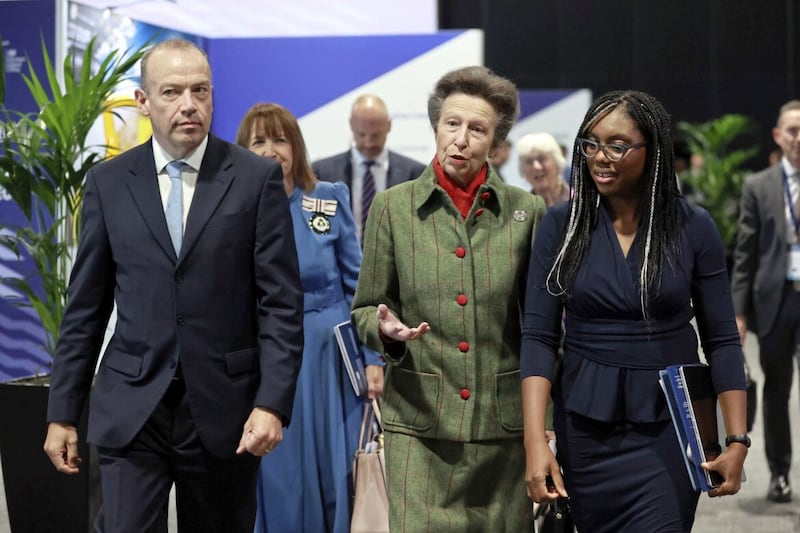FOR the business community Brexit uncertainty continues as firms struggle to figure out how the UK government will try to reconcile conflicting priorities in the months ahead.
The government wants to act independently in terms of trade but still wants to have full tariff-free access to the world’s largest trading block. It also wants to leave the EU customs union and shift its trade focus to further flung markets while simultaneously not disturbing Northern Ireland’s peace process with the introduction of a border.
The future looks highly uncertain and so contingency plans are being put together by many companies across Northern Ireland. For some local CBI members, these contingency plans include exploring relocation costs or building a subsidiary in the Republic or in GB. In some cases, firms are considering relocation to both Ireland and GB while abandoning Northern Ireland altogether.
Ireland is an attractive location because it has full tariff-free access to EU markets for both exports and imports, regulatory standards are compliant with customer requirements, access to skills is much better and corporation tax is low. GB is also a very attractive location for some smaller companies who have a large proportion of sales in that market and who worry about staying in Northern Ireland for a number of reasons.
Local managing directors cite high transport costs and poor connectivity, reduced access to skills, the local apprenticeship levy (which is a further tax on NI employers relative to their GB counterparts who can claim it back) and disappointment in local government and it’s inability to work together and deliver for the business community – for example on issues such as corporation tax, energy strategy, infrastructure etc.
But what worries me most in these conversations with companies across Northern Ireland is that firms believe that government policy is forcing them out of this region.
There is little doubt that some sectors and some regions will be much more exposed than others if the UK leaves the EU customs union and decides to embark on a new independent trade policy.
Last week we saw the Agricultural and Horticultural Development Board warning to UK farmers that their incomes could fall from an average £38,000 per annum to £15,000 after Brexit if the UK unilaterally opens its borders to low-cost food producers.
On Monday last the UK government published a paper entitled “Preparing for our future UK trade policy”. It sets out the government’s aspiration to broker international trade deals (an ambition that is inconsistent with staying in the EU’s current customs union). This government decision to seek free trade agreements beyond the EU will have a very variable impact upon different industries and UK regions.
Its latest paper stops short of identifying which sectors are most at risk because they still don’t know what future trade deals will look like and so far, there is no agreement in government around which sectors they will seek to protect in future deals and which they are prepared to let slip. The paper notes “We recognise that some areas and sectors may benefit from trade liberalisation more than others”.
Progress in the EU Brexit negotiations has not been as good as many would have liked. Much remains to be done in terms of the financial settlement and the rights of three million EU citizens living in the EU. Outstanding issues include: the role of the European courts, the family rights of EU nationals and some benefit related issues.
Where some headway was made however has been around a UK and EU proposed deal on WTO quotas for agriculture imports. This was the first big breakthrough in the Brexit-related talks; but the sense of achievement did not last long. By the end of last week, the Trump administration and other major agricultural exporters such as Brazil and Argentina signed a letter objecting to the plan to split the quotas as this would be unfair to other WTO members. It appears that, like the EU, the World Trade Organisation will not tolerate cherry-picking either!
With insufficient progress in the EU/UK negotiations, despite Theresa May being in Brussels yesterday, the risk of crashing out of the EU with no deal has been rising. The CBI have always been clear that “no deal” is not an option for the business community and the local (and indeed the entire UK economy) will suffer greatly should that be the case.
Without a deal, the UK would be turning its back on the simplicity and ease-of-trade resulting from membership of the single market and customs union. Trading relationships and supply chains would suffer serious disruption. We could see a return of much of the complexity which used to plague firms trading with Europe and there is a risk we would lose the mutual recognition of professional qualifications and licensing requirements that makes it easy to trade services across borders with the EU.
One of the forms these barriers would take would be tariffs imposed by the remaining EU member states on imports from the UK. In a “no deal” scenario, the UK would face tariffs on 90 per cent of its EU goods exports by value.
The need to agree a transition period and start moving to discussions on the final deal by the end of this year is of paramount importance to firms. Both sides of the negotiations must show the leadership and determination to get the talks moving more quickly because jobs and investment across Europe and in this little part of the world will depend upon it.
:: Angela McGowan is director of CBI Northern Ireland. Follow her at @angela_mcgowan








